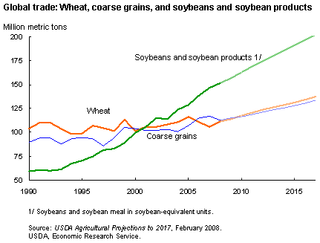 W
WWorld food prices increased dramatically in 2007 and the first and second quarter of 2008, creating a global crisis and causing political and economic instability and social unrest in both poor and developed nations. Although the media spotlight focused on the riots that ensued in the face of high prices, the ongoing crisis of food insecurity had been years in the making. Systemic causes for the worldwide increases in food prices continue to be the subject of debate. After peaking in the second quarter of 2008, prices fell dramatically during the late-2000s recession but increased during late 2009 and 2010, reaching new heights in 2011 and 2012 at a level slightly higher than the level reached in 2008. Over the next years, prices fell, reaching a low in March 2016 with the deflated Food and Agriculture Organization (FAO) food price index close to pre-crisis level of 2006. As of May 2017 they have not reached crisis levels again, despite prices increasing.
 W
WThe alimenta was a Roman welfare program that existed from around 106 AD to 272 AD. It was introduced by emperor Trajan soon after the Dacian Wars. It helped orphans and poor children throughout Italy. It provided general funds, as well as food and subsidized education. The program was supported initially out of Dacian War booty, and then later by a combination of estate taxes and philanthropy. In general terms, the scheme functioned by means of mortgages on Italian farms (fundi), through which registered landowners received a lump sum from the imperial treasure, being in return expected to pay yearly a given proportion of the loan to the maintenance of an alimentary fund. The program was likely terminated by emperor Aurelian following his triumph.
 W
WAntibiotic use in livestock is the use of antibiotics for any purpose in the husbandry of livestock, which includes treatment when ill, treatment of a group of animals when at least one is diagnosed with clinical infection (metaphylaxis), and preventative treatment (prophylaxis). Antibiotics are an important tool to treat animal as well as human disease, safeguard animal health and welfare, and support food safety. However, used irresponsibly, this may lead to antibiotic resistance which may impact human, animal and environmental health.
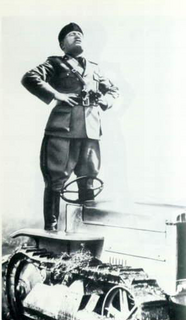 W
WThe Battle for Grain was an economic policy undertaken by the Fascists in Italy during the 1920s as a move toward autarky.
 W
WThe Berkeley Student Food Collective (BSFC) is a collectively operated non-profit grocery market founded by students of the University of California, Berkeley near the Berkeley campus. The market aims to expand student access to as many organic, locally sourced, fair trade and whole foods as possible. It also aims to educate the community about the food system and its environmental, social and political impacts. It opened its doors in 2010, after having won a $91,000 grant from UC Berkeley's The Green Initiative Fund (TGIF). The collective serves a selection of produce, refrigerated and packaged goods, as well as a weekly subscription-style produce box that contains local, seasonal produce. The storefront is located across the street from the university, on Bancroft Way.
 W
WBritish Restaurants were communal kitchens created in 1940 during the Second World War to help people who had been bombed out of their homes, had run out of ration coupons or otherwise needed help. In 1943, 2,160 British Restaurants served 600,000 very inexpensive meals a day. They were disbanded in 1947. There was a political dimension as well, as the Labour Party saw them as a permanent solution to equalising consumption across the class line and guaranteeing a nourishing diet to the poor.
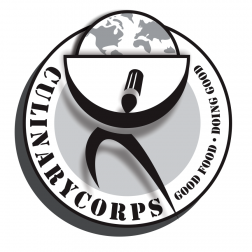 W
WCulinaryCorps is an American non-profit organization that recruits culinary students and professionals to volunteer their professional skills on trips to communities in the United States.
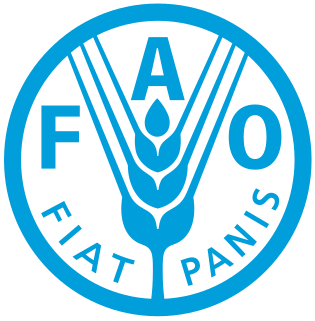 W
WDAD-IS is the acronym of the worldwide Domestic Animal Diversity Information System of the Food and Agriculture Organization of the United Nations, within the FAO's management of animal genetic resources programme. It includes a searchable database of information about breeds, the Global Databank for Animal Genetic Resources; it also holds tools for management, and contacts for the National and Regional Coordinators for the programme. Data from the Global Databank is used for reporting on the global status and trends of animal genetic resources. The fourth version of the DAD-IS was launched on 21 November 2017.
 W
WThe European Vegetarian Union (EVU) is a non-profit, non-governmental umbrella organisation for vegetarian societies and groups in Europe. The union works in the areas of vegetarianism, nutrition, health, consumer protection, the campaign for animal rights, ecology, general information and against world hunger. Headquarters are in Winterthur (Switzerland), together with the Swiss organisation Swissveg.
 W
WFarm-to-table is a social movement which promotes serving local food at restaurants and school cafeterias, preferably through direct acquisition from the producer. This might be accomplished by a direct sales relationship, a community-supported agriculture arrangement, a farmer's market, a local distributor or by the restaurant or school raising its own food. Farm-to-table often incorporates a form of food traceability where the origin of the food is identified to consumers. Often restaurants cannot source all the food they need for dishes locally, so only some dishes or only some ingredients are labelled as local.
 W
WThe Food and Agriculture Organization of the United Nations (FAO) is a specialized agency of the United Nations that leads international efforts to defeat hunger and improve nutrition and food security. Its Latin motto, fiat panis, translates to "let there be bread". It was founded in October 1945.
 W
WThe Food Assistance Convention is an international treaty relating to food assistance. It was adopted on 25 April 2012 in London. The treaty aims at "addressing the food and nutritional needs of the most vulnerable populations" and includes mechanisms for information sharing and registration of commitments made towards such assistance. The treaty entered into force on 1 January 2013.
 W
WAmerican food policy in occupied Germany refers to the food supply policies enacted by the U.S., and to some extent its dependent Allies, in the western occupation zones of Germany in the first two years of the ten-year postwar occupation of Western Germany following World War II.
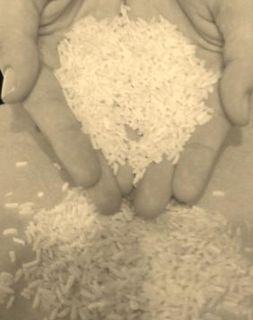 W
WFood policy is the area of public policy concerning how food is produced, processed, distributed, purchased, or provided. Food policies are designed to influence the operation of the food and agriculture system balanced with ensuring human health needs. This often includes decision-making around production and processing techniques, marketing, availability, utilization and consumption of food, in the interest of meeting or furthering social objectives. Food policy can be promulgated on any level, from local to global, and by a government agency, business, or organization. Food policymakers engage in activities such as regulation of food-related industries, establishing eligibility standards for food assistance programs for the poor, ensuring safety of the food supply, food labeling, and even the qualifications of a product to be considered organic.
 W
WIn international politics, food power is the use of agriculture as a means of political control whereby one nation or group of nations offers or withholds commodities from another nation or group of nations in order to manipulate behavior. Its potential use as a weapon was recognised after OPEC’s earlier use of oil as a political weapon. Food has a major influence on political actions of a nation. In response to acts of food power, a nation usually acts in the interest of its citizens to provide food.
 W
WFood safety is used as a scientific discipline describing handling, preparation, and storage of food in ways that prevent food-borne illness. The occurrence of two or more cases of a similar illnesses resulting from the ingestion of a common food is known as a food-borne disease outbreak. This includes a number of routines that should be followed to avoid potential health hazards. In this way food safety often overlaps with food defense to prevent harm to consumers. The tracks within this line of thought are safety between industry and the market and then between the market and the consumer. In considering industry to market practices, food safety considerations include the origins of food including the practices relating to food labeling, food hygiene, food additives and pesticide residues, as well as policies on biotechnology and food and guidelines for the management of governmental import and export inspection and certification systems for foods. In considering market to consumer practices, the usual thought is that food ought to be safe in the market and the concern is safe delivery and preparation of the food for the consumer.
 W
WFour Paws is a global animal welfare organisation based in Vienna, Austria. The organisation is focusing on gradually improving the living conditions of animals under direct human influence, by revealing suffering, rescuing animals in need and protecting them.
 W
WFree Cakes for Kids UK is a not-for-profit community service to families who find it difficult to provide a birthday cake for their child. Cakes are baked by volunteers, who operate in local and independent groups across the country.
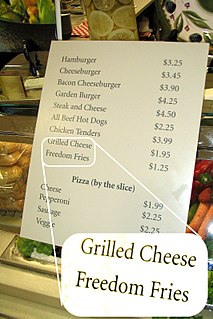 W
WFreedom fries was a politically motivated renaming for French fries in the United States. The term was created in February 2003 in a North Carolina restaurant, and was widely publicized a month later when the then Republican Chairman of the Committee on House Administration, Bob Ney, renamed the menu item in three Congressional cafeterias. The political renaming occurred in context of France's opposition to the proposed invasion of Iraq. Although some restaurants around the nation followed the renaming, the term became unpopular, in part due to declining support for the Iraq War. Following Ney's resignation as Chairman in 2006, the change in congressional cafeterias was reverted.
 W
WThe Global Hunger Index (GHI) is a tool that measures and tracks hunger globally as well as by region and by country. The GHI is calculated annually, and its results appear in a report issued in October each year.
 W
WCura Annonae was the term used in ancient Rome, in honour of their goddess Annona, to describe the import and distribution of grain to the residents of the city of Rome. After the re-foundation of Byzantium by Constantine the Great, the imperial city of Constantinople had its own cura annonae. Rome imported most of the grain consumed by its population, estimated to number one million people by the second century AD. An important part of this was the grain dole or corn dole, a government program which gave out free or subsidized grain, and later bread, to the poorest residents of the city of Rome. The dole was given to about 200,000 people, and is an early and long-lasting example of a social safety net.
 W
WThe International Food Policy Research Institute (IFPRI) is an international agricultural research center founded in the early 1970s to improve the understanding of national agricultural and food policies to promote the adoption of innovations in agricultural technology. Additionally, IFPRI was meant to shed more light on the role of agricultural and rural development in the broader development pathway of a country. The mission of IFPRI is to provide research-based policy solutions that sustainably reduce poverty and end hunger and malnutrition.
 W
WKing Corn is a documentary film released in October 2007 that follows college friends Ian Cheney and Curtis Ellis as they move from Boston to Greene, Iowa to grow and farm an acre of corn. Coincidentally, the trip also takes them back to where both of their families have roots. In the process, Cheney and Ellis examine the trend of increased corn production and its effects on American society, highlighting the role of government subsidies in encouraging the huge amount of corn grown. Furthermore, by studying the food economy through the history of corn in America, the two realize most foods contain corn in some form.
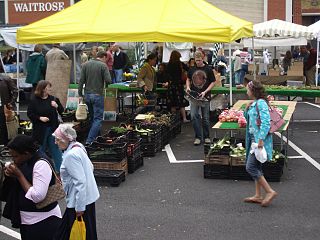 W
WLocal food is food that is produced within a short distance of where it is consumed, often accompanied by a social structure and supply chain different from the large-scale supermarket system.
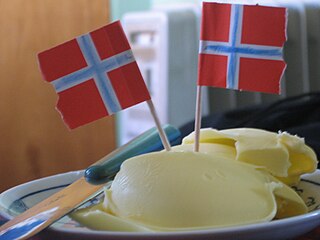 W
WThe Norwegian butter crisis began in late 2011 with an acute shortage of butter and inflation of its price across markets in Norway. The shortage caused soaring prices and stores' stocks of butter ran out within minutes of deliveries. According to the Danish tabloid B.T., Norway was gripped by smør-panik as a result of the butter shortage.
 W
WPeople for the Ethical Treatment of Animals is an American animal rights organization based in Norfolk, Virginia, and led by Ingrid Newkirk, its international president. The nonprofit corporation claims 6.5 million supporters. Its slogan is "Animals are not ours to experiment on, eat, wear, use for entertainment, or abuse in any other way."
 W
WRationing was introduced temporarily by the British government several times during the 20th century, during and immediately after a war.
 W
WThe right to food, and its variations, is a human right protecting the right of people to feed themselves in dignity, implying that sufficient food is available, that people have the means to access it, and that it adequately meets the individual's dietary needs. The right to food protects the right of all human beings to be free from hunger, food insecurity and malnutrition. The right to food does not imply that governments have an obligation to hand out free food to everyone who wants it, or a right to be fed. However, if people are deprived of access to food for reasons beyond their control, for example, because they are in detention, in times of war or after natural disasters, the right requires the government to provide food directly.
 W
WShopped: The Shocking Power Of British Supermarkets is a book by British author and investigative journalist Joanna Blythman first published by Fourth Estate in 2004. Described by one reviewer as "an emotive and bitter attack on [Britain's] supermarket culture" the book examines the way supermarkets have changed "diets, cities, countryside and economy" in Britain and argues that consumers have unwittingly "surrendered control over what [they] eat to a few powerful chains." Along with Felicity Lawrence's Not On The Label (2004) and Colin Tudge's So Shall We Reap (2003), Shopped was seen by some critics as representing the frontline of the emerging, radical Slow Food movement in Europe. The book helped establish Blythman's reputation as "one of the most influential commentators" on British supermarkets. It was the winner of the Best Food Book prize at the 2005 Glenfiddich Food and Drink Awards and was shortlisted for the 2005 Guild of Food Writers' Awards.
 W
WSlow Food is an organization that promotes local food and traditional cooking. It was founded by Carlo Petrini in Italy in 1986 and has since spread worldwide. Promoted as an alternative to fast food, it strives to preserve traditional and regional cuisine and encourages farming of plants, seeds, and livestock characteristic of the local ecosystem. It promotes local small businesses and sustainable foods. It also focuses on food quality, rather than quantity. It was the first established part of the broader slow movement. It speaks out against overproduction and food waste. It sees globalization as a process in which small and local farmers and food producers should be simultaneously protected from and included in the global food system.
 W
WSocial class differences in food consumption refers to how the quantity and quality of food varies according to a person's social status or position in the social hierarchy. Various disciplines, including social, psychological, nutritional, and public health sciences, have examined this topic. Social class can be examined according to defining factors — education, income, or occupational status — or subjective components, like perceived rank in society.
 W
WAntibiotics are commonly used in commercial swine production in the United States and around the world. They are used for disease treatment, disease prevention and control, and growth promotion. When used for growth promoting purposes, antibiotics are given at low concentrations for long periods of time. Low concentration of antibiotics, also referred to as subtherapeutic (STA), are given as feed and water additives which improve daily weight gain and feed efficiency through alterations in digestion and disease suppression. Additionally, the use of STA in swine results in healthier animals and reduces the “microbial load” on meat resulting in an assumed decrease in potential Foodborne illness risk. While the benefits of subtherapeutic antibiotic administration are well-documented, there is much concern and debate regarding the development of bacterial antibiotic resistance associated with their use.
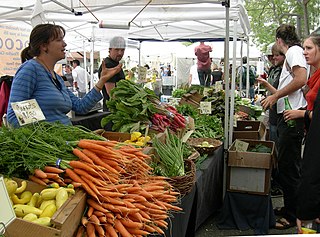 W
WThe United States Food Sovereignty Alliance is a group of food producers and labor, environmental, faith-based, social justice and anti-hunger advocacy organizations, including the Applied Research Center, Family Farm Defenders, the Indigenous Environmental Network, and the National Family Farm Coalition. The USFA advocates food sovereignty, which is the right to sufficient and culturally appropriate food to all people and communities, and aims to reestablish better relations between food producers and consumers, placing the needs of local farmers, fishers, indigenous peoples and landless workers most impacted by global hunger, poverty, and unbalanced food distribution above agribusiness and larger corporations. The USFA is organized into four Alliance Teams: Land & Resource Grabs, Immigrant Rights & Trade, Defense of Mother Earth, and Racism & Leadership.
 W
WThe Weston A. Price Foundation (WAPF), co-founded in 1999 by Sally Fallon (Morell) and nutritionist Mary G. Enig, is a U.S. 501(c)(3) nonprofit organization dedicated to "restoring nutrient-dense foods to the American diet through education, research and activism".
 W
WWorld Food Day is an international day celebrated every year worldwide on 16 October to commemorate the date of the founding of the United Nations Food and Agriculture Organization in 1945. The day is celebrated widely by many other organizations concerned with hunger and food security, including the World Food Programme and the International Fund for Agricultural Development. WFP received the Nobel Prize in Peace for 2020 for their efforts to combat hunger, contribute to peace in conflict areas, and for playing a leading role in stopping the use of hunger in the form of a weapon for war and conflict.